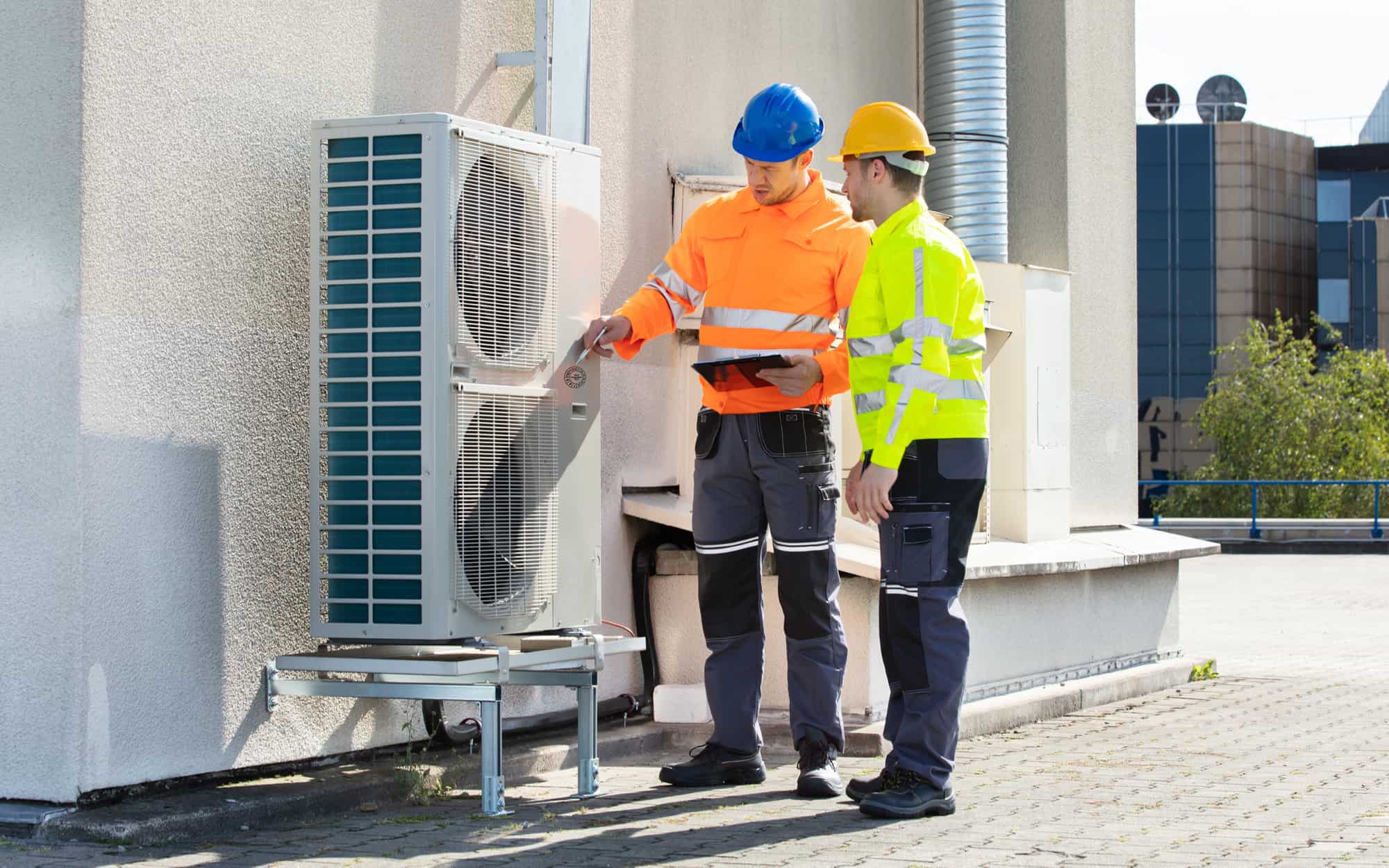HVAC Jobs Only helps you advance your professional career path
Discovering the Growing Demand for A/c Workers in Todays Work Market
The HVAC industry is experiencing a remarkable rise in need for skilled workers. This trend is mainly affected by the growing focus on power effectiveness and lasting practices. As innovation evolves, the demand for specialists that can adapt to new systems becomes crucial. Furthermore, regulatory changes are improving the landscape. What variables are adding to this change, and exactly how can striving experts position themselves for success in this broadening area?
Elements Driving the Demand for Cooling And Heating Professionals
As the worldwide concentrate on energy performance intensifies, the need for HVAC experts proceeds to rise. This increased need is driven by numerous factors, including the expanding focus on sustainable building practices and the implementation of more stringent energy codes. Numerous companies and homeowners are looking for to decrease their carbon impacts, motivating a change towards energy-efficient home heating, ventilation, and air conditioning systems. In addition, the expansion of clever innovation in a/c systems requires skilled specialists that can mount and maintain these sophisticated systems. The aging infrastructure of existing HVAC devices adds to the demand also; older systems require replacement or upgrades to fulfill modern efficiency criteria. Populace growth and urbanization are leading to a better demand for climate control in commercial and property areas. With each other, these variables develop a robust task market for a/c specialists, highlighting the significance of their function in today's economy.
Necessary Abilities and Educating for HVAC Careers
A solid structure of vital skills and training is crucial for success in cooling and heating jobs. Professionals should have a complete understanding of air, home heating, and air flow conditioning systems, including their installation, maintenance, and repair service. Proficiency in checking out blueprints and technological guidebooks is key, as is a strong understanding of electrical and mechanical systems.
Additionally, analytic skills are essential, allowing specialists to identify concerns efficiently and carry out options immediately. Hands-on experience, usually gained via instructions or trade training programs, provides functional knowledge that complements theoretical knowing.
Accreditations, such as those from the Epa (EPA) or the North American Service Technician Quality (NATE), improve a technician's credentials and bankability. Solid interaction skills are important for connecting with clients and recognizing their requirements. Constant education and training in arising innovations are likewise necessary to remain affordable in this developing area.
The Effect of Energy Efficiency on HVAC Work
With expanding worries regarding environment change and climbing power expenses, the need for energy-efficient HVAC solutions has greatly affected employment possibility in the industry. As consumers and businesses seek to lower power consumption, HVAC companies are increasingly concentrating on lasting techniques and ingenious modern technologies. This shift has actually created a requirement for competent professionals that are trained in energy-efficient systems, such as geothermal systems and wise thermostats.
In addition, regulatory changes focused on improving energy effectiveness requirements have even more fueled job development. HVAC professionals need to stay updated on these guidelines, improving their qualifications and bring in more employees to the field. In addition, the focus on retrofitting existing systems to fulfill energy standards has opened up brand-new methods for work. On the whole, the emphasis on energy effectiveness not only reacts to market demands but additionally promotes a more sustainable workforce, eventually reshaping the a/c work landscape in significant ways.
Job Opportunities and Innovation in the HVAC Market
Although the cooling and heating industry faces developing challenges, it likewise offers a riches of job chances and pathways for improvement. As need for experienced professionals remains to rise, people entering this field can locate different functions, from installation to upkeep and fixing. Entry-level settings typically work as tipping rocks, supplying hands-on experience and important training.
With extra certifications and specialized training, HVAC professionals can pursue sophisticated functions such as system style, power auditing, and project monitoring. Numerous companies additionally use opportunities for improvement into managerial or management settings, permitting workers to handle leadership functions within their organizations.
The HVAC sector further encourages constant knowing, allowing workers to stay existing with technological advancements and power performance standards (HVAC Jobs Only). This commitment to specialist advancement promotes a vibrant workplace, making the HVAC sector an appealing choice for those seeking a gratifying and stable occupation course
The Future of HVAC Jobs in a Changing Economy
As the heating and cooling industry progresses in action to a changing economic situation, the landscape of work opportunities is changing substantially. Breakthroughs in modern technology, particularly in energy effectiveness and smart home systems, are developing a demand try this website for competent professionals who can browse intricate setups and repair services. The growing emphasis on sustainability is likewise bring about raised chances in the installment and upkeep of eco-friendly systems.
Furthermore, the aging labor force postures challenges, as many experienced HVAC employees retire, leaving a space that more youthful specialists must fill up. Educating instructions and programs are ending up being important to outfit novices with the required skills. Employers are most likely to prioritize candidates with knowledge in both standard HVAC systems and emerging technologies.
Moreover, the surge of remote job and altering consumer choices may result in innovations in solution shipment, additional broadening task functions within the heating and cooling field. Generally, the future of heating and cooling work appears Get the facts robust, driven by technological innovations and developing market demands
Often Asked Inquiries
What Is the Average Income for Heating And Cooling Technicians Today?

Since 2023, the ordinary salary for HVAC service technicians in the United States is about $50,000 yearly. Elements affecting this figure include experience, area, and the complexity of the systems being serviced.

Are There Age Restrictions for Going Into HVAC Training Programs?
The majority of a/c training programs do not impose stringent age constraints. Normally, participants need to be at the very least 18 years old, but some programs may accept more youthful individuals with parental permission or senior high school completion requirements.
How Lengthy Does It Take to End Up Being Heating And Cooling Qualified?
Usually, it takes six months to two years to come to be cooling and heating accredited, depending on the program and previous experience. Numerous individuals pick to finish instructions, which can additionally enhance their abilities and expertise in the field.
What Kinds of Companies Hire Cooling And Heating Professionals?
Numerous business hire heating and cooling professionals, including residential and commercial a/c contractors, construction companies, home management firms, energy company, and government agencies. Furthermore, production and maintenance companies frequently seek experienced HVAC visit specialists for their operations.
Is Relocation Common for Heating And Cooling Job Opportunities?

As the worldwide emphasis on power efficiency increases, the need for A/c professionals continues to increase. In addition, the expansion of wise modern technology in HVAC systems demands proficient service technicians that can install and keep these sophisticated systems. The aging infrastructure of existing Heating and cooling devices adds to the need as well; older systems call for replacement or upgrades to satisfy modern performance requirements. With added accreditations and specialized training, Heating and cooling professionals can seek innovative functions such as system layout, power bookkeeping, and task management. Different firms employ HVAC professionals, consisting of household and business HVAC service providers, building firms, residential property administration business, power solution providers, and government agencies.